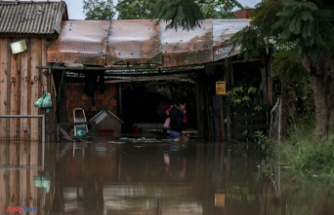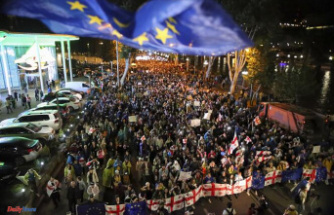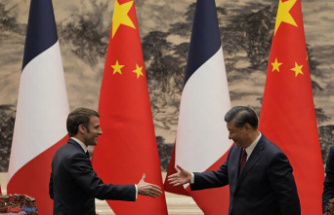At a special meeting in Brussels, the energy ministers of the EU states reached a "political agreement to reduce gas demand", as announced by the Czech EU Council Presidency. The plan envisages that the member countries will each save 15 percent of gas on a voluntary basis from August to the end of March.
The agreement came amid further cutbacks in Russian gas supplies through the Nord Stream 1 pipeline. However, the planned EU regulation provides for numerous special rules. In Germany, sectors such as the food and fertilizer industries are exempt from the savings target.
The overall savings target of 45 billion cubic meters of gas originally planned by the EU can no longer be achieved, said Habeck in Brussels. However, he expressed confidence that many countries would save more than planned because of the high gas prices.
Federal Finance Minister Christian Lindner (FDP) named possible measures such as optimizing the settings for gas heating or switching to the home office over Christmas and New Year in large authorities so that the buildings do not have to be heated. Thus, the situation can also be managed without the “partially funny hints, such as when showering”, said Lindner RTL / ntv. Habeck had suggested that the Germans take shorter showers, following his example.
EU Commission President Ursula von der Leyen welcomed the agreement on the gas emergency plan as "a decisive step to counter Putin's threat of a complete gas shutdown". However, the member states had softened the solidarity mechanism with Germany that she presented on Friday in days of negotiations.
According to its own statements, Italy only has to save around seven percent on gas. Exceptions also apply to countries with a low connection to the interconnected grid, such as Spain and Portugal, as well as the Baltic states or islands such as Ireland, Cyprus or Malta. You can apply to be exempted from mandatory savings targets.
A higher hurdle is now planned for this to be decided by an “EU alarm”: at least five states must call on the EU Commission to initiate emergency measures. The EU states would then have to adopt them with a qualified majority - i.e. at least 15 states representing 65 percent of the EU population. Von der Leyen had unsuccessfully requested a special power of attorney to be able to directly enforce savings targets.
Hungary was the only EU country to speak out against the agreement. The plans are "impossible to implement" and are directed "against the interests of the Hungarian people," said Foreign Minister Peter Szijjarto. Last week in Moscow he tried to get more Russian gas, even though the EU wants to significantly reduce its dependency. Hungary had already delayed an oil embargo against Russia in June. In the EU, this has led to massive resentment with Budapest.
Mandatory savings targets in Europe could become necessary in as little as two months, it said in Brussels. Should German industry get into difficulties due to a lack of gas, massive consequences are feared, including an economic downturn. "If the chemical industry in Germany coughs, the entire European industry could come to a standstill," warned the French energy transition minister Agnès Pannier-Runacher in Brussels.
The change in the law still has to be formally sealed by the EU countries before it comes into effect. The European Parliament has no say.












